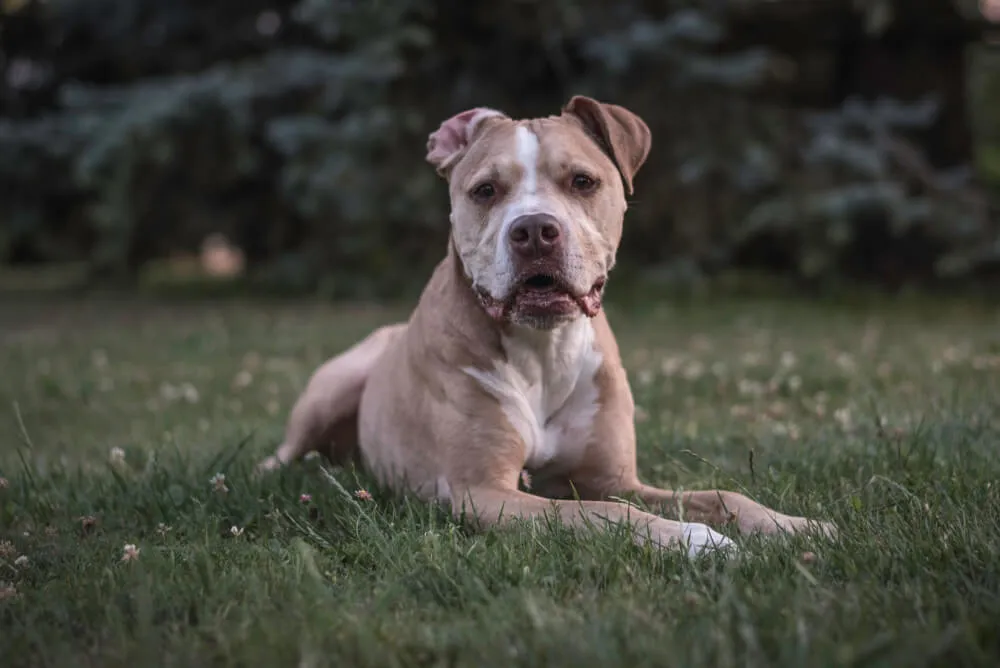Pitbulls are powerful, energetic dogs that demand a nutrient-dense diet to support their muscular build and active lifestyle. Finding the best dog food for pitbulls starts with two key factors: Is your pitbull a puppy or an adult? And is it a large or medium breed? These distinctions matter because improper nutrition can lead to serious health issues like hip dysplasia, especially in growing puppies.
Genetics play a role here—some pitbull lines trace back to larger breeds, while others are more medium-sized. Medium pitbull puppies typically mature around 12-14 months, but large-breed ones may take up to 24 months. Feeding the wrong formula during this critical growth phase risks skeletal problems. For reliable guidance, check out our best dog food recipes recommended by vets for homemade options tailored to active breeds.
 Best Dog Food for Pitbulls
Best Dog Food for Pitbulls
Nutritional Needs Unique to Pitbulls
Pitbulls thrive on high-quality protein to maintain lean muscle mass, moderate fats for sustained energy, and joint-supporting nutrients like glucosamine and chondroitin. According to AAFCO nutrient profiles, adult formulas should provide at least 18% protein and 5% fat minimum, but pitbulls often benefit from 25-30% protein to fuel their athleticism.
For skin and coat health—common concerns in this breed—look for omega-3 and omega-6 fatty acids from sources like fish oil. Avoid fillers like corn or wheat that can trigger allergies. Vets emphasize balanced calcium-phosphorus ratios (1.2:1 to 1.8:1) for puppies to prevent bone deformities.
Real-world experience from pitbull owners shows that switching to premium kibble improves energy levels and reduces itching. One study in the Journal of Small Animal Practice highlights how nutrition impacts skeletal growth, underscoring the need for breed-appropriate foods.
Top Choices for Adult Pitbulls
Our editors selected AAFCO-compliant dry foods rated 4-5 stars, prioritizing companies with transparent sourcing and value. These formulas suit both medium and large adults, offering complete nutrition without excess calories that could lead to obesity.
High-protein options with real meat as the first ingredient excel here. For instance, beef or fish-based recipes provide variety and appeal to picky eaters. Budget-friendly 4-star picks often outperform pricier brands in quality control and affordability, making them ideal for everyday feeding.
Explore Blue Buffalo Fit and Healthy Dog Food for a weight-management formula perfect for muscular pitbulls staying in top shape.
Best Formulas for Pitbull Puppies
Puppies require higher protein (22%+) and fat (8%+) for rapid growth. Large-breed puppy foods limit calories and minerals to curb overgrowth, reducing hip dysplasia risk by up to 50%, per veterinary research.
Feed small, frequent meals—4-6 times daily initially—to match their metabolism. Transition to adult food gradually over 7-10 days to avoid digestive upset. Always consult a vet for personalized advice, especially if your pitbull shows signs of joint strain.
Laura Ward, a pet nutritionist with a BSc in Animal Science, verifies these picks meet growth standards. Her industry experience confirms that well-formulated puppy foods support lifelong health.
Wet Food Options and Variety
For hydration and palatability, incorporate healthy wet dog food for senior dogs into rotations—adaptable for active adults too. Wet foods boost moisture intake, aiding kidney health in breeds prone to allergies.
Mixing dry and wet maintains interest while controlling costs. Discover more in pleasant pet care tips for balanced routines.
Feeding Tips for Optimal Results
Portion based on weight: Adults need 2-4 cups daily, split into two meals. Monitor body condition—ribs palpable but not visible. Adjust for activity; working pitbulls may need 20% more calories.
Annual vet check-ups ensure no allergies or sensitivities. Track weight monthly to prevent joint stress.
Final Thoughts
Selecting the best dog food for pitbulls boils down to age, size, and quality ingredients meeting AAFCO standards. Prioritize protein-rich, joint-supportive formulas to keep your pitbull vibrant and healthy. Consult your veterinarian for tailored plans, and experiment responsibly.
Ready to upgrade? Dive into our guides for more breed-specific advice.
Sources
- IAMS: How to Transition Your Puppy to Adult Food
- Hazewinkel HAW. Nutrition in relation to skeletal growth deformities. J Sm Anim Practice. 1989;30:525-630.
- AAFCO Dog Food Nutrient Profiles, Association of American Feed Control Officials, 2018 Official Publication, pages 155-159.
